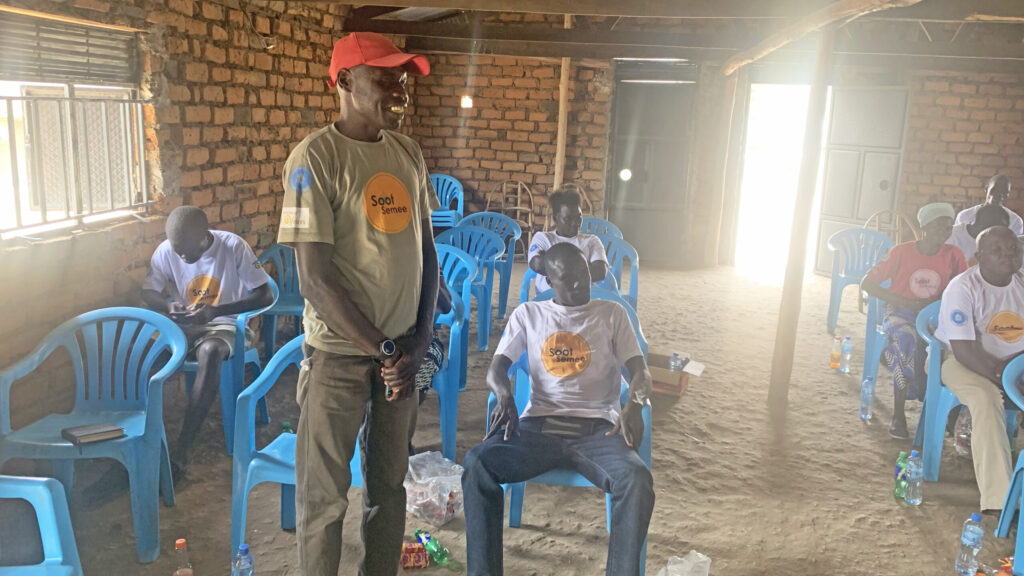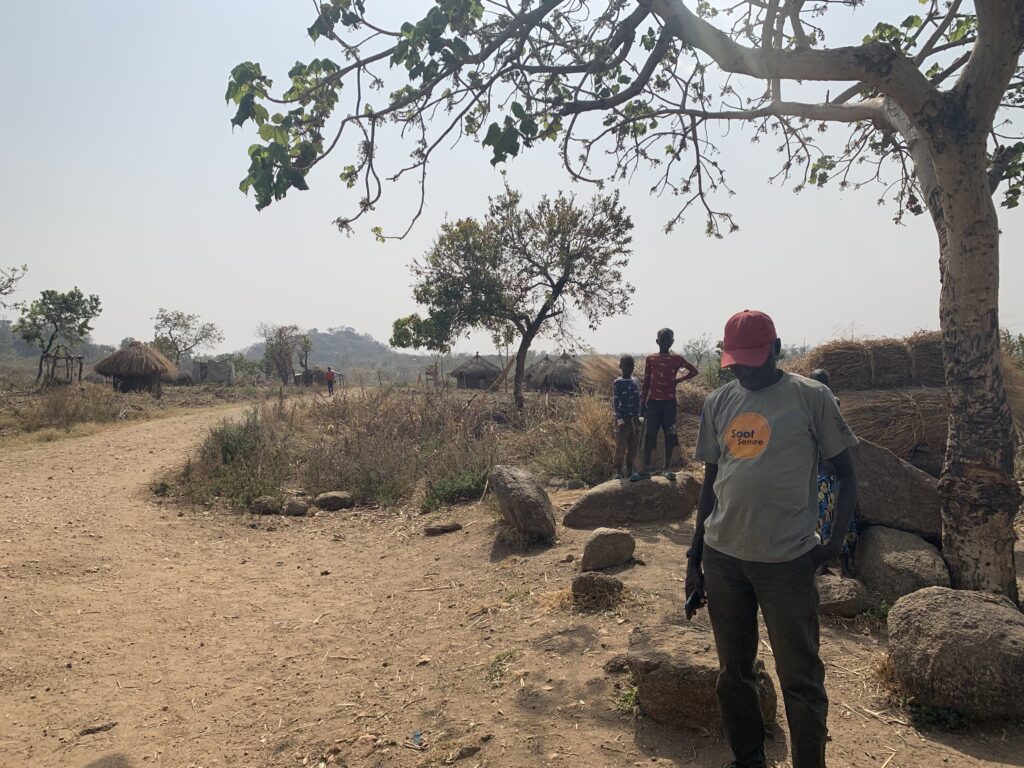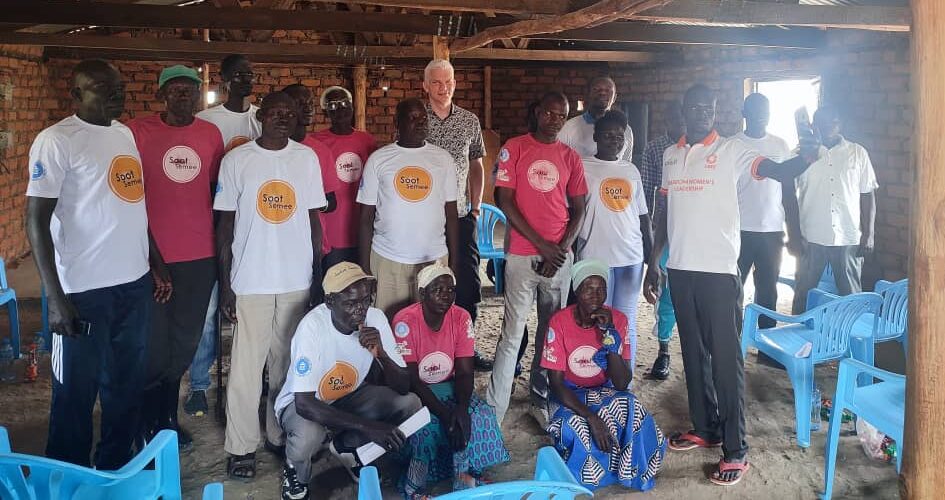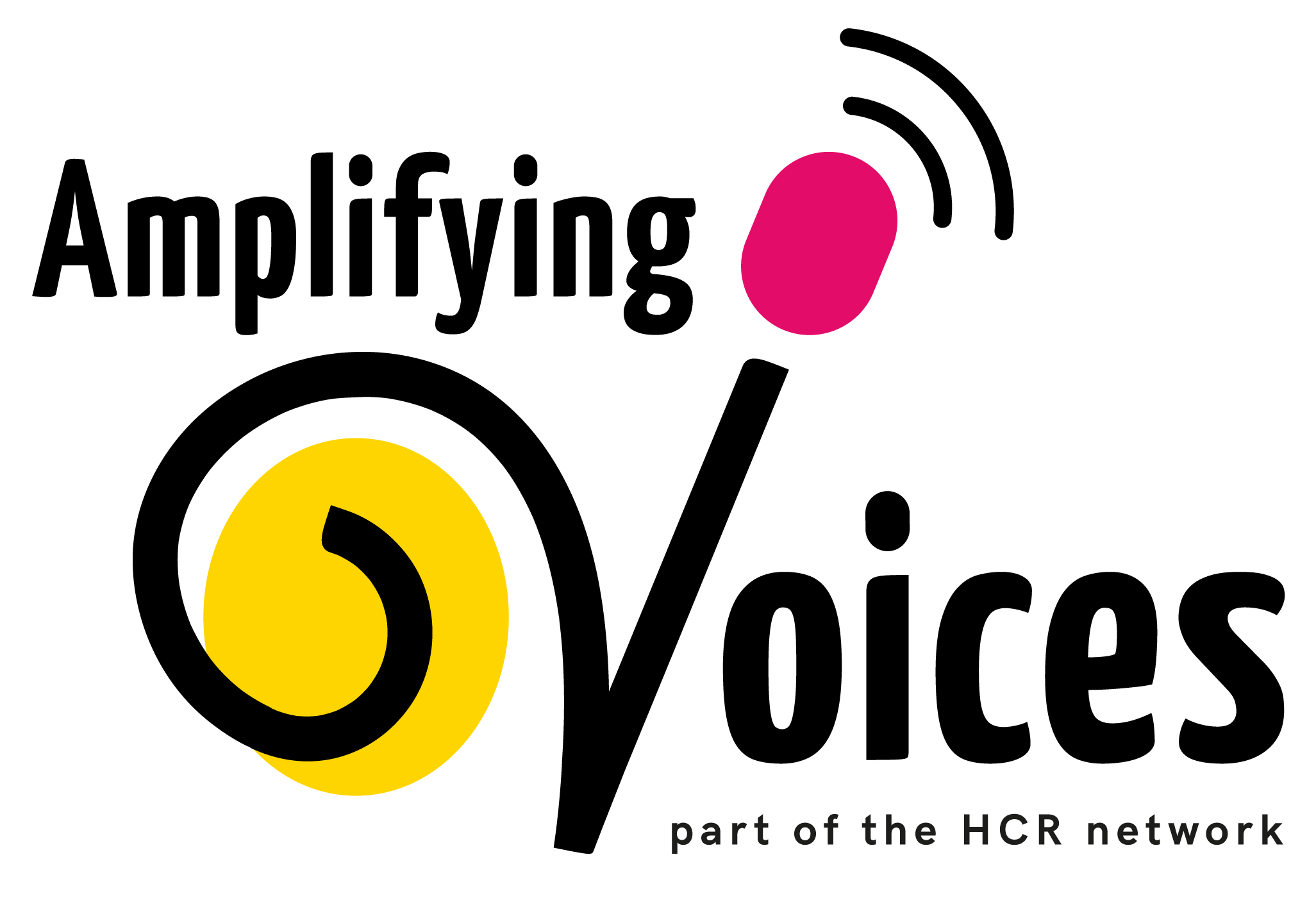
Soot Semee raises up new leaders
Soot Semee audio programmes are proving instrumental in raising up new community leaders in Omugo Zone, northern Uganda.
I visited the Soot Semee community-centred media project in February. Our partner Community Development Centre (CDC) took me to meet with the Council of Reference – a group of people in the Omugo 4 village who oversee and advise on the Soot Semee content. Soot Semee programmes are MP3 podcasts on digital memory cards (SD Cards) played on speakerboxes (digital audio players). The people of Omugo 4 village just call it “radio”.
The Council of Reference shared stories about the impact of Soot Semee audio programmes. As these respected community leaders talked about transformational effects of the Soot Semee radio programmes it quickly moved from theoretical to personal.
One woman started to talk about the difficulties many women have faced on arriving in Uganda from South Sudan. They often have no relatives or spouse with them to help with the children. She said that Soot Semee programmes help women in this situation with advice. But more than advice, the programmes help people realise they are not alone. She said “also they feel that they have people when they listen to the radio”.
She continued her reflection, “For me this is something that is personal, when I came here, I was just as I am, I don’t have anyone, I didn’t know people, and I would have no opportunity for standing before people like this. But now [as part of] the council of reference I have people, I can meet, and I can stand before people and do a lot of things.”
Another woman on the Council of Reference said that she felt that Soot Semee was so valuable that it needed to be available for people in the other refugee settlements. But she also recognised that with this exposure came responsibility. “Soot Semee has made me a leader, I am a role model, so I take care of how I live my life as an example.”
I am no farming expert, but as we went about in the Omugo 4 settlement I could see very clearly that it sits on a very rocky and inhospitable ridge, it doesn’t look like good land for growing crops. I was told that attempts to grow fruit trees had failed due to the harsh landscape. Back in the Council of Reference meeting, one of the men told us that Soot Semee programmes had helped people to start farming vegetables such as okra despite the harshness of the land. Before people would have travel a long way to market town to buy such vegetables.

Despite rocky and arid landscape, Omugo 4 villagers are succeeding in growing vegetables like okra. Feb 2023
These harsh living conditions take their toll in other ways. The man continued,
“I want to speak about myself. Before Soot Semee [programmes were available], I would just be, my ears, monitoring where alcohol is. If I come for a meeting like this, something like [this] soda, I would just put the alcohol in there. Through Soot Semee, I had been listening, when the chairman and some of the others, they talked to me as part of their off-air activities and brought me some programmes about alcohol [abuse] and said if I continue like this, my life will not be OK. So, from a drunkard, I was brought by the Council of Reference to leadership. Now I stand before people and now I have been elected as a block leader.”
As I had prepared for this visit, I knew I wanted to better understand reports that Soot Semee programmes had led to reductions in gender-based violence (GBV). Its hard to get a comprehensive understanding from a small sample of stories, especially when the cultural context is so different to my own. However, I heard a few stories like Joseph’s story,
“I have two women. One of them is good, and the other one is not harsh. But sometimes it starts, there is some kind of problem at home. [gestures and local language reactions indicate he meant that tensions sometimes led to violence]. But when Soot Semee came, there were a lot of things [on the radio] about how people can control their emotions. And in our families, we tried and learned how we could change. Now for me, I would tell them, look I am a community reporter, I am also a community leader. I don’t want to do anything that is very bad. So now I controlled myself during the day or at night, so that I don’t do something bad. I will take it slowly, and now if there is some issue, we solve our issues. As a reporter and community leader, I want to be a role model, that is why I am doing that. I want to make sure that what I am teaching is the thing that I am doing.”
Just as the meeting was about to close, a man stood up and summarised for us the sense of purpose and hope that Soot Semee is instilling in people from all parts of the community.
“Soot Semee brought so many good things. What we wanted … trainings that come via this Soot Semee for us as leaders, so that when we go back to our country, we can help them as well there. … If you are a leader, if don’t have many skills, then as a leader you will not be able to govern people. I, who am speaking here, I am disabled. I am walking with these crutches. But Soot Semee has done very well, has brought in us people who have disabilities. Soot Semee did not say this person is disabled, they cannot be part of us. They included me.”
Barnabas from CDC closed the meeting, thanking the Council of Reference and honouring the huge impact they are having. As he speaks, it occurs to me, Soot Semee is not something coming to these people from outside. These people are Soot Semee.

Soot Semee Council of Reference group photo. Omugo 4. Feb 2023
